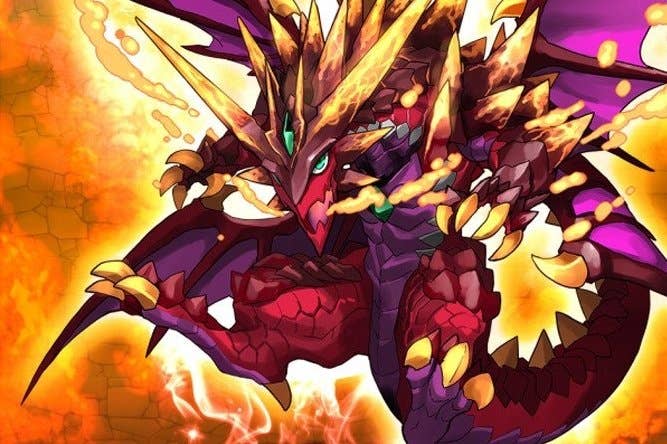GungHo's full-year results suggest larger problems for mobile majors
Attempts to expand Puzzle & Dragons audience will yield diminishing returns, so where do the market leaders go now?
GungHo's full-year results indicated that it has not yet found a solution to the slowing growth of its most popular and lucrative game, Puzzle & Dragons.
For the year ended December 31, 2014, the Japanese mobile company earned ¥173 billion ($1.45 billion) in revenue and ¥94.3 billion ($792 million) in operating profit - hardly insignificant numbers, but at just 6 per cent and 3.3 per cent growth respectively, it's light years away from the sort of momentum the company experienced at its peak.
That its peak has passed shouldn't be a surprise, given that Puzzle & Dragons was launched three years ago this month. However, any company that relies so heavily on a single product for growth cannot afford to sit on its reputation. Certainly, its subsequent mobile products haven't come close to matching the success of Puzzle & Dragons, in either downloads or revenues.
"GungHo has impossibly far to fall. Investors, though, are a different breed, with different expectations of what a successful business looks like"
One aspect of the issue for GungHo is the spread of its audience. Puzzle & Dragons has been downloaded more than 33 million times in its native Japan, but only 10 million times beyond its borders. Attempts to build the game's presence elsewhere in the world through partnership deals - most prominently with Supercell - haven't yielded the sort of results many expected.
And yet this continues to be GungHo's most loudly trumpeted strategy for growth. In its investor presentation, a slide titled "2015. P&D will grow furthermore" had only this to offer: "Strengthen overseas expansion by new game and business alliance with leading publisher in each area." With this in mind, the recent announcement of a Mario-themed Puzzle & Dragons (the global release of which is scheduled to start this April) seems likely to benefit GungHo far more than Nintendo.
And yet one simply cannot ignore the size of Puzzle & Dragons' audience in Japan. According to data released with GungHo's investor presentation, Puzzle & Dragons was the seventh most popular keyword search for Google Japan last year - sandwiched between "Amazon" in sixth, and "News" in eighth. In addition, a survey conducted in November 2014 found GungHo/Puzzle & Dragons to be the second most favourable brand advertised on Japanese television, and a unanimous first among boys and girls under the age of 12.
The simple fact is that, regardless of the size of its year-on-year growth, GungHo has impossibly far to fall. Investors, though, are a different breed, with different expectations of what a successful business looks like. GungHo is still undoubtedly that, but its share value has nevertheless plummeted from a high of ¥766 in June 2014 to a current price of ¥417 - that's a 45 per cent drop in substantially less than a year, and not to be ignored.
"It remains to be seen whether brand loyalty on mobile extends beyond individual IP and to the companies that actually create them"
Another remedy for stimulating growth GungHo offered to its investors was mergers and acquisition, capping its presentation with a slide suggesting, "Establishment of business base by M&A," will be a key objective for the year ahead. Indeed, it is already engaged in doing just that, acquiring or investing in Playphone, Kamcord and Chukong Holdings in 2014.
But the reality is that, in a mobile market where the cost of acquiring users and installs is outpacing the revenue that those installs and users return, perhaps the only truly solid strategy for growth is to create a new IP that emulates the success of its predecessor.
In that regard, few of the big earners in mobile have managed to do so, and there's a strong argument that, actually, none of them have really come close. Rovio continues to find new ways to mine Angry Birds, King has simply added a little Soda to Candy Crush, and Supercell could only lay claim to that achievement if you treat Clash of Clans as a follow-up to the considerably less successful Hay Day.
It remains to be seen whether brand loyalty on mobile extends beyond individual IP and to the companies that actually create them. GungHo's investors will be hoping that's the case.

